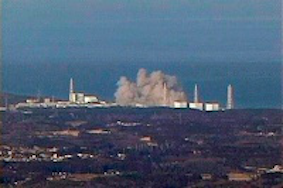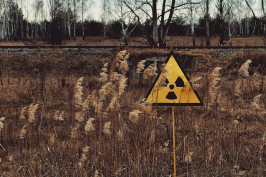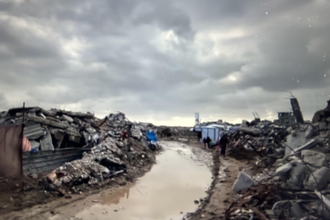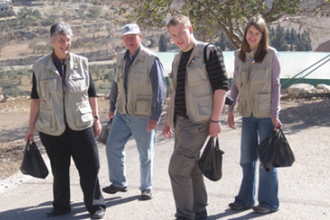Japanese, Korean bishops protest plan to dump radioactive water into sea

Fukushima explosion 2011 image UCAN
Source: UCAN, Vatican News
Catholic bishops in Japan and Korea have joined scientists, environmentalists and fishing groups to oppose plans to releasing radioactive water from the damaged Fukushima nuclear power plant into the sea.
On 11 March 2011, a 9.0 magnitude earthquake struck off the north-eastern coast of Japan, triggering a 15-metre tsunami. It seriously damaged the Fukushima Daiichi Nuclear Power Station. The meltdown was considered the worst nuclear accident since the Chernobyl disaster in 1986.
Years of debate have followed regarding the disposal of liquid from the crippled plant, which includes water used to cool the facility. Japanese authorities have now decided to release a million tonnes of treated water into the sea. The initial plan was to start releasing the water from 2022 but a final decision has not been made, according to Japanese media.
Most of the radioactive isotopes have been removed using a complex filtration process called the Advanced Liquid Processing System (ALPS). But one isotope, tritium, cannot be removed, so water has been stored in huge tanks that will fill up by 2022, the BBC reported.
Scientists, environmentalists and fishing groups have opposed the idea of releasing the contaminated water into the sea, citing possible risks.
"We oppose the release of water containing tritium, a radioactive material that has been purified and treated, into the ocean," said a joint statement by the Justice and Peace Commissions of the bishops' conferences of Korea and Japan, the Korean bishops' ecological and environmental committee and the Japanese bishops' denuclearization subcommittee for peace.
The statement drew the attention of Prime Minister Yoshihide Suga, the minister of economy, trade and industry, the minister of environment, the minister of reconstruction and the secretary of resources energy resources.
The bishops of the two countries expressed concern that the report from the Japanese government makes no mention of the effects that the ALPS-treated water has on marine life, the marine environment and human health. They said the treated water "contains tritium, which is a radioactive material". "Secondary treatment of radionuclides remaining in the treated water," they said, "is still in the testing stage, and no definite results have been obtained," the bishops' said.
"Rather, we can say for sure that once released into the ocean, radioactive material is irreversible. It will have impacts on humans and nature." "It will cause greater anxiety and damage to people around the world."
"We have a responsibility to hand over to future generations a global environment where we can truly live safely and with peace of mind," the bishops wrote, pointing to Pope Francis's 2015 encyclical, Laudato si' which urges solidarity for the coming generations.
"Since the world has been given to us, we can no longer view reality in a purely utilitarian way, in which efficiency and productivity are entirely geared to our individual benefit," the Pope says. "Intergenerational solidarity, is not optional, but rather a basic question of justice, since the world we have received also belongs to those who will follow us."
A Greenpeace report released in October said that the contaminated water from the Fukushima nuclear plant contains "dangerous levels of carbon-14", a radioactive substance that it says has the "potential to damage human DNA".
In a separate statement, the Korean bishops' ecological and environmental committee expressed concerns about the recent tritium leak at the Wolseong nuclear power plant in Gyeongju in South Korea.
On 7 January, Korean media reported a radioactive leak from the plant, prompting Korea Hydro and Nuclear Power Company to investigate. The initial results exposed a wide range of radioactive contamination in the plant and adjacent areas
The Korean Church demanded the government "conduct a thorough and transparent investigation into the leakage and immediate follow-up measures for radioactive leaks in all nuclear power plants."


















